Search the Special Collections and Archives Portal
Search Results
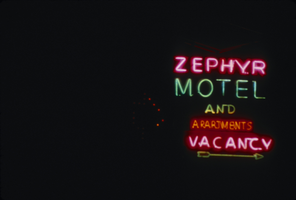
Slide of the neon sign for the Zephyr Motel at night, Reno, Nevada, 1986
Date
1986
Archival Collection
Description
A color image of the neon sign for the Zephyr Motel on West 4th Street, lit up at night. Site Name: Zephyr Motel (Reno, Nev.)
Image
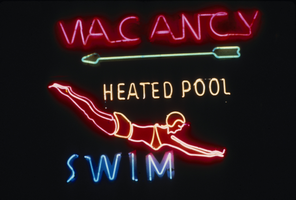
Slide of the neon sign for the Zephyr Motel at night, Reno, Nevada, 1986
Date
1986
Archival Collection
Description
A color image of the neon sign for the Zephyr Motel on West 4th Street, lit up at night. Site Name: Zephyr Motel (Reno, Nev.)
Image
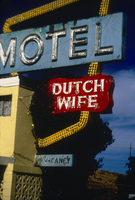
Slide of the neon sign for the Dutch Wife Motel, Reno, Nevada, 1986
Date
1986
Archival Collection
Description
A color image of the neon sign for the Dutch Wife Motel on West 4th Street, during the day. Site Name: Dutch Wife Motel (Reno, Nev.)
Image
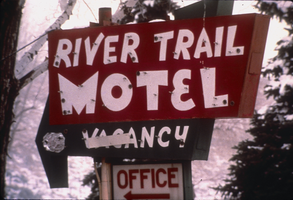
Slide of the neon sign for the River Trail Motel, Reno, Nevada, 1986
Date
1986
Archival Collection
Description
A color image of the neon sign for the River Trail Motel on West 4th Street, during the day. Site Name: River Trail Motel (Reno, Nev.)
Image
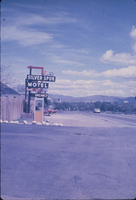
Slide of the neon sign for the Silver Spur Motel, Reno, Nevada, 1986
Date
1986
Archival Collection
Description
A color image of the neon sign for the Silver Spur Motel on West 4th Street in Reno, during the day. Site Name: Silver Spur Motel (Reno, Nev.)
Image
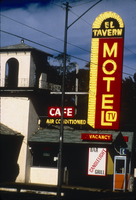
Slide of the El Tavern Motel and its neon sign, Reno, Nevada, 1986
Date
1986
Archival Collection
Description
A color image of the neon sign for the El Tavern Motel on West 4th Street in Reno. Part of the motel is also visible. Site Name: El Tavern Motel (Reno, Nev.)
Image
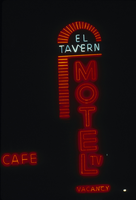
Slide of the neon sign for the El Tavern Motel at night, Reno, Nevada, 1986
Date
1986
Archival Collection
Description
A color image of the neon sign for El Tavern Motel on West 4th Street in Reno, lit up at night. Site Name: El Tavern Motel (Reno, Nev.)
Image
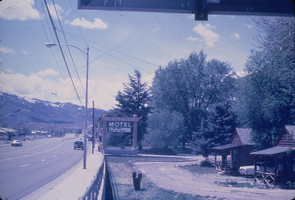
Slide of the neon sign for the Silver State Motel, Reno, Nevada, 1986
Date
1986
Archival Collection
Description
A color image of the neon sign for the Silver State Motel on West 4th Street in Reno. Part of the motel is also visible. Site Name: Silver State Motel (Reno, Nev.)
Image
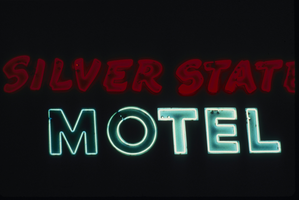
Slide of the neon sign for the Silver State Motel at night, Reno, Nevada, 1986
Date
1986
Archival Collection
Description
A color image of the neon sign for the Silver State Motel on West 4th Street in Reno, lit up at night. Site Name: Silver State Motel (Reno, Nev.)
Image
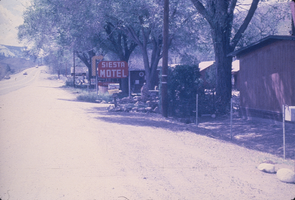
Slide of the Siesta Motel and its neon sign, Reno, Nevada, 1986
Date
1986
Archival Collection
Description
A color image of the neon sign for the Siesta Motel on West 4th Street in Reno. Part of the motel is also visible. Site Name: Siesta Motel (Reno, Nev.)
Image
Pagination
Refine my results
Content Type
Creator or Contributor
Subject
Archival Collection
Digital Project
Resource Type
Year
Material Type
Place
Language
Records Classification
